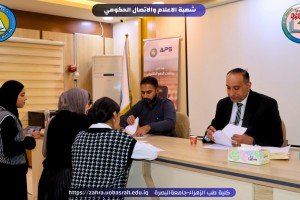Dr. Qutaiba Muslim Dawood, a faculty member at Al-Zahraa College of Medicine, University of Basrah, and a specialist in internal medicine and hematology, published a scientific paper in Clarivate-indexed journals on the impact of sickle cell disease (SCD) on the spleen. The study, a cross-sectional investigation conducted in Basrah, Iraq, examined spleen characteristics in patients with SCD using ultrasound and analyzed the relationship between these characteristics and hematological parameters, specifically WBC and PLT.
The research was a collaborative effort involving several researchers from the Basrah Health Directorate:
- Dr. Hussein Sami Sadiq, senior radiology and ultrasound resident at Basrah Teaching Hospital,
- Dr. Amna Shabeer Abdul Kareem, senior resident in clinical hematology at Al-Zahraa College of Medicine, University of Basrah,
- Dr. Asaad Abdul Ameer, consultant hematologist and director of the Basrah Hematology Center, Basrah Health Directorate.
The study included a sample of patients over 15 years old diagnosed with sickle cell disease, excluding cases with sickle cell trait or other chronic diseases. Spleen characteristics were assessed and classified as normal, enlarged, atrophied, or autoinfarcted.
The results showed that spleen enlargement was more common among younger patients, with an average age of 19.5 years, while spleen autoinfarction was more prevalent among older patients, averaging 35.4 years. Spleen enlargement was associated with lower hemoglobin levels, whereas autoinfarction correlated with elevated white blood cell (WBC) and platelet (PLT) counts.

.jpeg)
.webp)
